Before we define metabolism let’s talk about the word “metabolism” that comes from the Greek word metabol? (meaning change). When we eat, the food in our bodies are broken down so that energy can be produced and that new broken down molecules can help to maintain and build new molecules and tissue in your body.
Before we define metabolism let’s talk about the word “metabolism” that comes from the Greek word metabol? (meaning change). When we eat, the food in our bodies are broken down so that energy can be produced and that new broken down molecules can help to maintain and build new molecules and tissue in your body.
Let’s look at the metabolism definition. Metabolism can be defined as the total amount of physical and chemical processes by which substances, such as muscle are produced, maintained, and broken down. It also includes the processes by which energy is made available in an organism.
What is a resting metabolic rate?
A resting metabolic rate is also called the basal metabolic rate. This is the rate at which you burn calories (the amount of energy that can be extracted from a food) or energy when resting. So, it is the functions that go on in your body when you are sitting on the chair and watching television. An example of the ongoing processes in your body is the working of your lungs and your heart that beats all the time.
Many people who wish to lose weight works out what their resting metabolic rate is, so that they know how much calories they have to take in for their normal body functions to work. When they know this, they find out what workout will help them to burn more calories than what they eat (above their calorie needs for their resting metabolic rate). When you take in more calories than what is needed or used, these calories are stored for later use, mostly in the form of fat.
The two processes of metabolism:
There are two processes associated with metabolism. These processes are called anabolism and catabolism. Anabolism is the processes where molecules are built up and where energy is stored for later use. During the anabolism process fats, proteins and carbohydrates are stored for later use. Catabolism is the process where molecules are broken down so that it can create energy. It is also the process where molecules from food are broken down into smaller molecules that can be used to build new molecules. All the anabolism and catabolism reactions are catalysed (when a chemical reaction is speeded up) by enzymes (Types of protein molecules that help chemical processes to take place in your body).
An example of a catabolic process that takes place in the body is when proteins (large molecules that your body tissue is made of) are broken down into amino acids (organic molecules that are made up from molecules such as carbon, hydrogen, nitrogen and oxygen). These amino acids can then be absorbed and used within cells. An example of an anabolic process in the body is when proteins are made by combining different amino acids.
Which organs are responsible for controlling metabolism?
Two organs in your body help to control metabolic processes in your body. The first organ is the thyroid that controls how much energy your body gets from food and the second organ is the pancreas that controls what the body does with the energy that it created from the food.
Metabolism boosting food and tips on how to speed up your metabolism:
- Build some muscles! Muscles use more calories than fat per day, just to sustain itself.
- Do more cardio exercises. These are exercises that make your heartbeat really fast, such as running.
- Drink more water, water helps to increase the burning rate of calories.
- Eat more snacks. When you eat more snacks, such as an apple or a few nuts in between meals, your metabolism stays more active and you will not feel so hungry when you eat your daily meals.
- Eat more spicy food such as cayenne pepper; it speeds up your metabolism.
- Eat more protein and less fat and carbohydrates, because your body uses more calories when burning protein.
- Drink green tea, because it also helps to speed up your metabolism.
- Eat lots of raw and whole foods such as green leafy vegetables and lentil sprouts. These foods help to increase enzymes that help to speed up metabolic processes in your body as well.
Now you know exactly what the word metabolism means and you know how to increase your metabolism. Where are you going to start to kick-start your body’s metabolism?





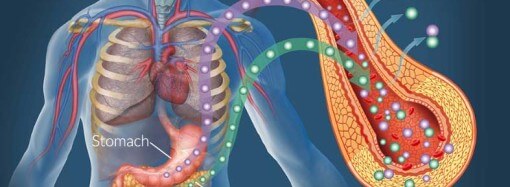


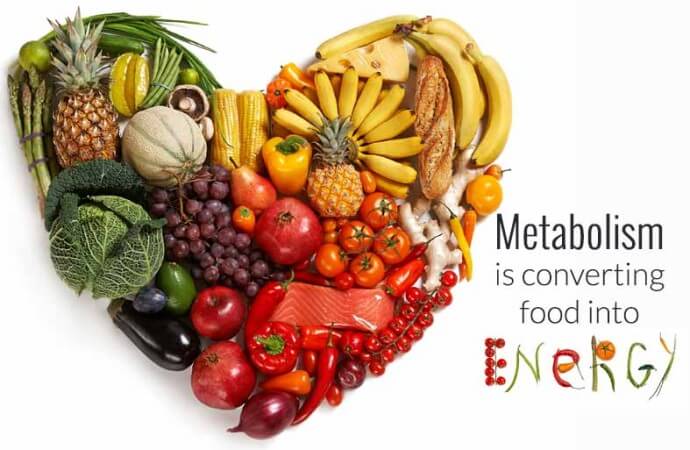
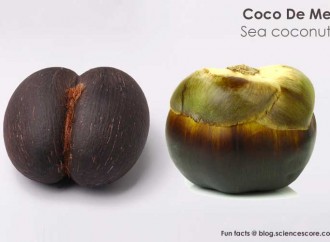

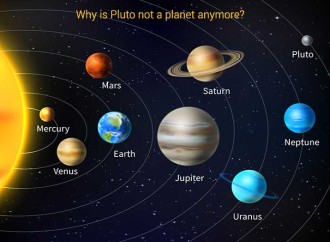
















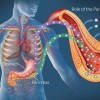



















Leave a Reply